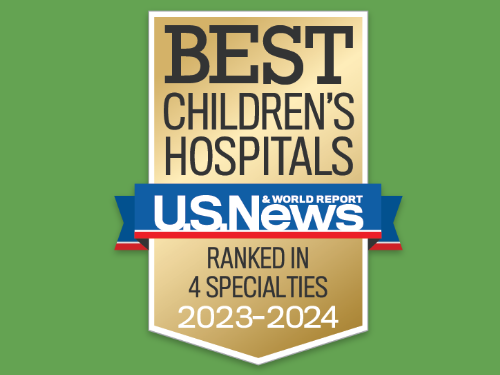What Is an Ependymoma?
Ependymomas are a rare type of tumor found in the brain or spinal cord. Ependymomas are thought to form from the ependymal cells that line the fluid-filled spaces in the brain and canal of the spinal cord.
Each year, approximately 200 new cases of ependymoma are diagnosed in the United States. Although ependymoma may occur at any age, children and young infants are more often affected; in fact, ependymoma is currently the third most common type of pediatric brain tumor.
Subtypes of ependymomas are grouped by the World Health Organization into three different grades depending on how fast the tumor is likely to spread: subependymoma or myxopapillary ependymoma (Grade I), ependymoma (Grade II), and anaplastic ependymoma (Grade III). Grade I tumors contain cancer cells that grow slowly, while Grade III tumors tend to grow larger more quickly.
How Is Ependymoma Diagnosed?
Children with ependymoma may present with different symptoms depending on the location of the tumor. Common general symptoms include:
- Headache
- Balance difficulties or unsteady gait
- Nausea
- Blurred vision
A neurologist or neurosurgeon may diagnose ependymoma in your child first by conducting a neurologic exam during which coordination, reflexes, mental status, and muscle control are tested. Magnetic Resonance Imaging (MRI), a procedure that generates pictures of the brain and spinal cord, is then used to confirm this diagnosis. Your physician may also diagnose ependymoma by performing a lumbar puncture to test a sample of cerebrospinal fluid (CSF). Fluid that contains a higher or lower amount of protein or glucose may indicate the presence of a tumor.
How Is an Ependymoma Treated?
The standard method of treatment for ependymoma is surgery to remove as much of the tumor as possible without harming the surrounding tissue. Because complete removal of certain types and locations of ependymomas is usually impossible, your physician may also recommend follow-up treatment in the form or radiation or chemotherapy. Radiation therapy uses high-energy X-rays to destroy cancer cells and stop the growth of the tumor. Chemotherapy also prevents a tumor from spreading by using powerful drug therapies that target cancer cells.
Pediatric Brain Tumor Trial for Recurrent Posterior Fossa Ependymoma
The Children’s Neuroscience Center has a new brain tumor trial that is open to qualified participants. The research study is being conducted by David Sandberg, M.D., Professor and Director of Pediatric Neurosurgery at McGovern Medical School at UTHealth and Children’s Memorial Hermann Hospital.
The study is called “Infusion of 5-Azacytidine (5-AZA) into the Fourth Ventricle or Resection Cavity in Children with Recurrent Posterior Fossa Ependymoma: A Phase I Study.” It is open to patients who are age 1 to 80 years old with recurrent ependymoma that originated in the posterior fossa of the brain.
The study employs a novel means of treating ependymoma brain tumors that originate from the fourth ventricle: infusion of a chemotherapy agent directly into the fourth ventricle rather than systemic intravenous delivery. The agent being infused, 5-AZA, has been shown to effectively kill ependymoma cells in the laboratory and been shown to be safe when infused at a lower dose directly into the fourth ventricle in a pilot clinical trial. There will be no simultaneous systemic chemotherapy.
This study is listed at ClinicalTrials.gov, NCT # 03572530. If you would like additional information about this study, please contact Bangning Yu, RN (email Bangning.Yu@uth.tmc.edu; telephone (713) 500-7363.
Contact Us
If you have any questions, use the online tool below to help us connect with you. To refer a patient or schedule an appointment, please contact our clinic using the information below.
- Pediatric Stroke Clinic
UT Professional Building
6410 Fannin, Suite 500
Houston, TX 77030
P: (713) 500-7164 - Pediatric Neurosurgery Clinic
6410 Fannin Street, Suite 950
Houston, TX 77030
P: (832) 325-7234 - UTHealth Houston Gulf State Hemophilia and Thrombophilia Center
6655 Travis Street, Suite 100
Houston, TX 77030
P: (713) 500-8366
To contact Children's Memorial Hermann Hospital, please fill out the form below.
